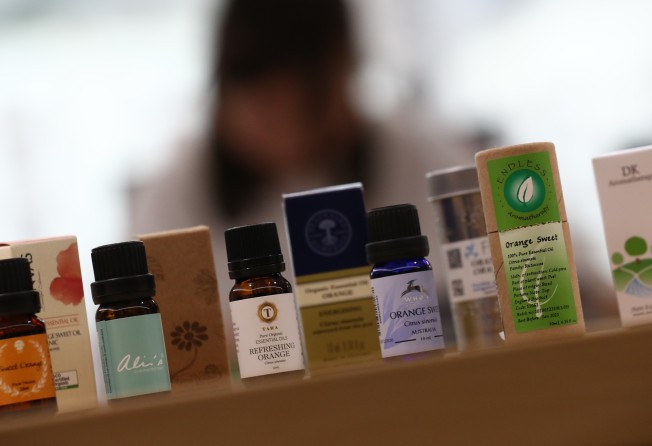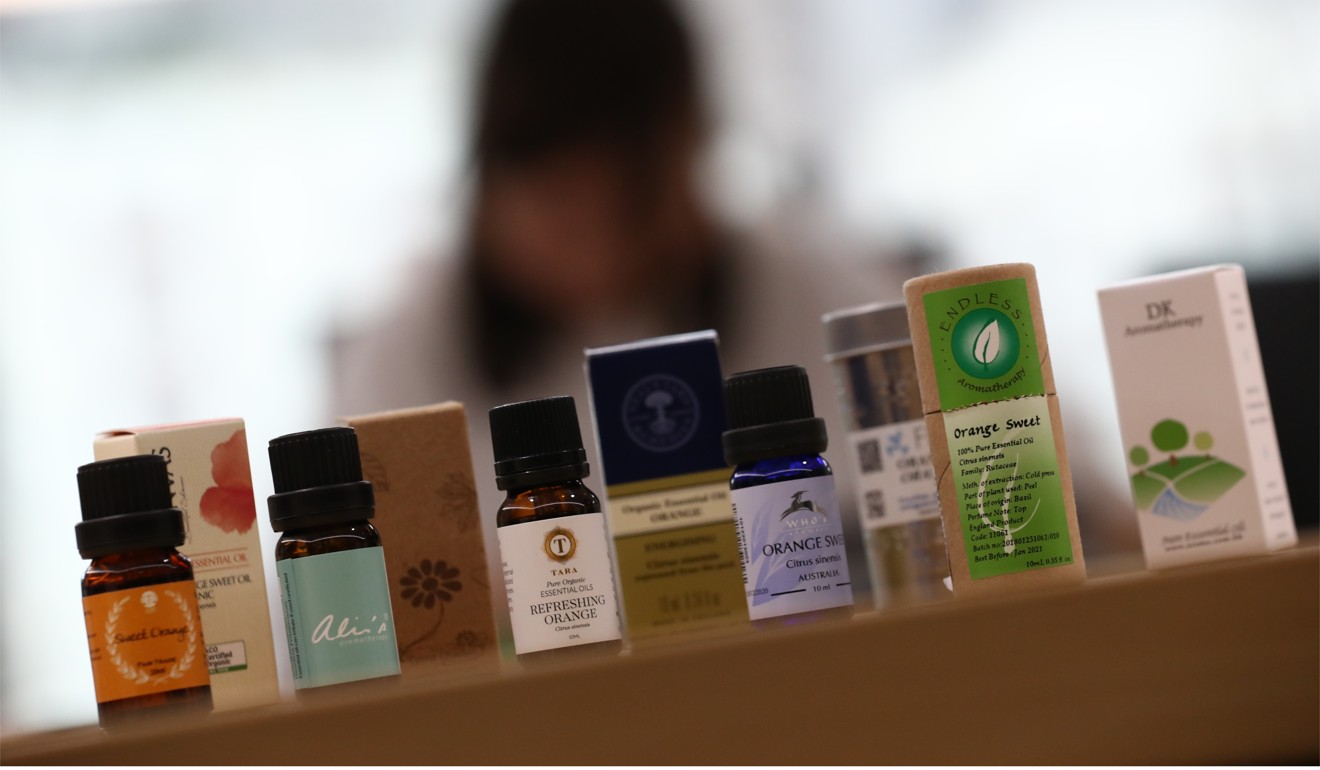Hong Kong Consumer Council wants better labelling of essential oils after tests reveal unlisted or wrongly named allergens in samples
Watchdog calls for detailed usage guides for such products to be included with packaging and on websites

Almost 30 types of essential oils sold in Hong Kong contain at least two fragrance allergens that can trigger reactions in users but these details are not listed on the bottles, the Consumer Council warned on Wednesday.
The watchdog tested samples from different brands, including lavender, sweet orange and eucalyptus oils, for 26 fragrance allergens covered by the European Union’s cosmetics regulations.
The largest number – seven – was found in Lemongrass House Lavender Pure Essential Oil, made in Britain, and Ali’s Aromatherapy Lavender, from France.
Of the 30 bottles tested, only four were labelled with the names of the allergens. But among these, the number and types of allergens stated on the packaging were found to be different from those detected in the tests.
The EU has stipulated that products with any of these 26 allergens exceeding the specified levels (0.001 per cent and 0.01 per cent for leave-on and rinse-off cosmetics respectively) must include the names of the allergens on their list of ingredients.
Consumer Council chief executive Gilly Wong Fung-han said product labelling for essential oils was “substandard” in the city, which has no laws requiring the disclosure of fragrance allergens in items.
“We don’t have a specific regulation to talk about cosmetic items or this type of skin product. So we believe the enforcement authority has to continue to monitor the risk of this kind of product,” she said, referring to customs officers.

According to the council’s tests, an allergen called limonene, which exists naturally in lemon and other citrus trees, was detected in all tested products. Dr Karen Shum Hau-yan, chairwoman of the council’s research and testing committee, said the substance could irritate the skin and eyes and could also present the risk of contact allergy after oxidation.
[With] just one click, the customers should be able to know how to make use of the products in great detail
The council advised consumers to dilute the oils before use on skin to reduce the chance of an allergic reaction. But only about half the oils tested, or 16 products, had dilution instructions on their labels, it added.
The watchdog said proper labelling was essential for easy reference, even if salespeople could also provide such information to customers.
Wong said the companies should provide product use guides and details on the packaging and on their websites.
“[With] just one click, the customers should be able to know how to make use of the products in great detail,” she said.
The council also warned that oils from citrus fruits, such as bergamot essential oil, contained furocoumarin, which could cause pain or a rash when applied to the skin and exposed to UV light. It urged consumers to avoid applying such products to the face, adding they should not remain in the sun for long periods or within 12 hours after use.
The watchdog found only 24 of the products tested had been labelled as being for external use. It warned consumers to be careful about using these oils as a food flavouring.
In a reply to the council, the agent for Lemongrass House said information on its oil products was provided at its shops, and its salespeople would also explain the details to consumers. But the company said it would update its labels and specify the content of allergens if any were found.
The agent for Ali’s Aromatherapy told the council it was normal to find allergens in the oils and insisted they were natural substances. It said the amount of citral and linalool found in the samples was in line with manufacturing standards, while the amount of geraniol detected was slightly higher than the standard. The agent suggested that consumers store the oil products away from heat and sunlight.